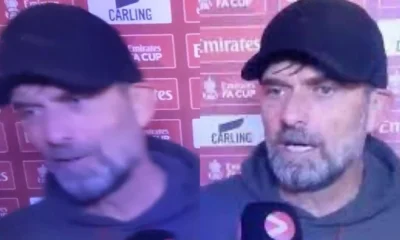Blog
The Meaning Behind “Everything I Own” by Bread and David Gates’ Touching Dedication to His Dad
 When it came to songwriters and performers in the early 1970s, David Gates of Bread was the only one who successfully matched melodic ease with sensitive, heart-tugging lyricism. “Everything I Own,” a blockbuster hit single that he released in 1972, is considered to be one of his best works. Despite the fact that it is a love song, it is a song that is burdened by a huge loss. Many people hear it as a love song.
When it came to songwriters and performers in the early 1970s, David Gates of Bread was the only one who successfully matched melodic ease with sensitive, heart-tugging lyricism. “Everything I Own,” a blockbuster hit single that he released in 1972, is considered to be one of his best works. Despite the fact that it is a love song, it is a song that is burdened by a huge loss. Many people hear it as a love song.
Is there a story behind the song? Who was it that Gates was alluding to? Also, what was the impetus for him writing it? The song “Everything I Own” has a lot of nooks and crannies, and we are going to take a look at all of them, from how it was created to what it means.
A Band at the Pinnacle of Their Career
Do you believe that your band is having a successful year? To put it into perspective, consider what Bread did in 1972. During the course of that single calendar year, they released two studio albums, each of which featured six songs that reached the top 20. This contained the song “Everything I Own,” which was included on the first of those albums released in 1972 (Baby I’m-A Want You) and reached the fifth spot on the pop charts before being removed.
The band’s rise to prominence reached its zenith in that particular year. During the 1960s, Gates had been writing songs for other musicians and also attempting to release solo singles. He had been all over the place. The band Bread was established when Gates joined forces with James Griffin and Robb Royer, who were both songwriters and multi-instrumentalists. Their debut album was not very successful, but the song “It Don’t Matter to Me” became a number one hit in 1970, which catapulted them to the forefront of the music industry. From that point on, they continued to have hits for the following few years.
During the time that “Everything I Own” was being performed, Larry Knechtel had taken over for Royer in the band. He played the beautiful harpsichord section that gives the song a bit of a flourish, which was a significant contribution to the song. Gates delivers an expressive vocal performance, one that wanders into his falsetto throughout the verses before returning to more authoritative tones for the dramatic refrain. Gates’s vocal performance is a reflection of his emotional state.
A Memorial to My Father
It is not uncommon for people to hear the song “Everything I Own” as a form of testimony to what one would do in order to be with their significant other. Possibly this is the reason why it has proven to be such a durable cover material. Ken Boothe, a reggae musician, and Boy George, who is famous for his work with Culture Club, have both managed to take it to the top spot in the United Kingdom.
However, as Gates was writing the song, he did not have romantic feelings in mind. Right around the time when Gates was beginning his career as a musician, his father had passed away. And according to what he shared with The Guardian, “Everything I Own” was his way of paying tribute to his father and the significant impact that he had on his life:
The year 1963 was the year that my father passed away, and I decided to compose a song in his honor. However, dad did not live to witness the major hits or popularity that I achieved with Bread. dad did live to witness some of my early advances toward success. It was the music that took the lead in all of my songs, and the words tried their best to keep up with it, but they came quite rapidly. I composed the lyrics, which read, “I would give everything I own just to have you back again,” with the intention that they could be construed as a love song; but, when I played it for my wife, she immediately understood that it was about my father. She shed tears.
Is there a deeper meaning to the phrase “Everything I Own”?
He was able to keep the emotional content of “Everything I Own” generic enough so that it could be applied to all different kinds of relationships, as Gates indicated in the comment that was just above this one. He does not sugarcoat his words (You gave my life to me / Set me free, set me free), but he also displays a little bit of humor with the language in order to prevent things from becoming too serious (You taught me how to love / What it’s of, what it’s of).
The passage “No one else could ever know” and “the part of me that can’t let go” are both excellent examples of how Gates does an excellent job of finding original methods to communicate the grief. In the bridge, Gates gives his audience some advice about telling people you love them while you still have the opportunity to do so. He says, “You may lose them one day / Someone takes them away / And they don’t hear the words you long to say.” This puts an end to any pretense that this song is in any way about a love affair that is still going on.
At that time, “Everything I Own” comes roaring back into the chorus, and Gates begins to explain what he would do in order to get you back again. The fact that the song is able to function as both a love poem and a eulogy is evidence of the accomplishments that the songwriter achieved with this, which is one of Bread’s most emotionally powerful shots.
-

 Blog7 months ago
Blog7 months agoThe next spy thriller starring Rami Malek has created a movie that is a competitor to Slow Horses Season 5.
-

 Blog2 months ago
Blog2 months agoTrener Pogoni Szczecin Wskazuje Pięciu Kluczowych Zawodników na Letnie Okienko Transferowe
-

 Blog9 months ago
Blog9 months agoGabriela Sabatini, la mejor tenista argentina de la historia, visible y Orgullosa
-

 Football6 days ago
Football6 days agoWidzew Łódź ogłasza odejście bramkarza Rafała Gikiewicza w wielomilionowym transferze do FC Nantes
-

 Blog1 month ago
Blog1 month agoPrezes Widzewa Łódź Michał Rydz wskazuje swoich kandydatów do składu na przyszły sezon
-

 Blog9 months ago
Blog9 months agoThere are seven quotes from Gabriela Sabatini that explain why she was so far away from the sport of tennis, her rivalries with Graf, and the players who are most admired by her at the present time.
-

 Football5 days ago
Football5 days agoLegia Warszawa żegna się z Marcem Gualem po dużym transferze do FC Kuhn
-

 Liverpool1 year ago
Liverpool1 year agoFull Reason why 56-year-old Liverpool manager Jurgen Klopp angrily storms out of interview after Manchester United win vs Liverpool FA Cup quarter final
